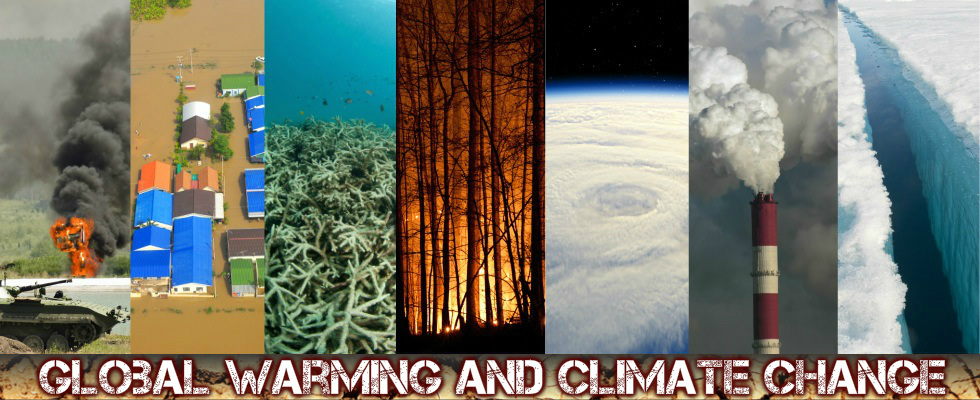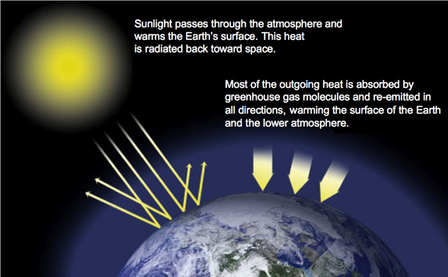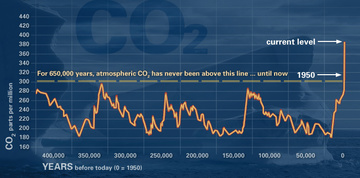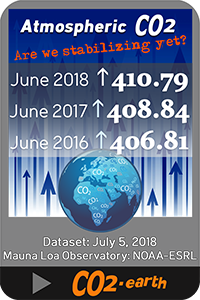
Global Warming and Climate Change
Evidence of Rapid Climate Change
The evidence of rapid climate change is irrefutable and effectively transcends all social, economic, political and environmental bounds. Everything is affected. Since 1880, the average global temperature has risen about 0.8°C (1.4°F), resulting in many of the weather extremes and climatic changes we see today, however, the most comprehensive CO2 study to date by the Global Carbon Project says that the world is now firmly on course for the worst-case scenario in terms of climate change, with average global temperatures rising by up to 6°C (11.5°F) by the end of the century.
Scientific Consensus on Global Warming
Every national academy of science of every major country in the world agrees. Every professional scientific society in every field related to the field of climate endorses it. 97-98 percent of all scientists that are most active in publishing in the field of climate science agree with it. The consensus is unequivocal: human activities are causing climate change.
Global Warming Effects
The effects of climate change are profound and far-reaching. Learning the hard way that we can't separate the economy from the ecological systems that support it, climate change, perhaps the greatest challenge and threat humanity has ever faced, has been left largely unchecked by world leaders to continue unabated threatening the basis of civilization itself.
Global Warming Skepticism
Faced with irrefutable physical evidence and an incontrovertible scientific consensus, many climate deniers find refuge and success in rhetorical manipulation, in confirmation bias, in ideology, in PR spin campaigns, in exploiting scientific complexity to avoid any discussion at all, in narrow pieces of the puzzle while neglecting the broader picture and perhaps most important, in dirty energy money and secret funding to keep them going and build vast networks of climate denial thinktanks.
Global Warming Observations and Quotes
Within five years, the International Energy Agency predicts irreversible climate change. "On planned policies, rising fossil energy use will lead to irreversible and potentially catastrophic climate change… we are on an even more dangerous track to an increase of 6°C [11°F]…. Delaying action is a false economy: for every $1 of investment in cleaner technology that is avoided in the power sector before 2020, an additional $4.30 would need to be spent after 2020 to compensate for the increased emissions.” ~IEA World Outlook 2012
View all of the information about global warming and climate change presented on this site summarized in one attractive and interactive infographic.
"Climate change is the biggest global health threat of the 21st century ... the impacts will be felt all around the world — and not just in some distant future but in our lifetimes and those of our children.” ~ The Lancet, 2009/The world's leading general medical journal
The Greenhouse Effect


Despite the fact that Venus is twice as far from the sun and the sunlight it receives is only a quarter as intense as the sunlight shining on Mercury, the surface of Venus is hotter than the surface of Mercury, due to the greenhouse effect. Venus has a very thick atmosphere, comprised mainly of carbon dioxide which traps an immense amount of heat from the sun, whereas Mercury has no atmosphere. Photo: NASA-APL
 Venus: Too Much Greenhouse Effect
Venus: Too Much Greenhouse Effect
The atmosphere of Venus is extremely thick, comprised nearly entirely of carbon dioxide, producing a runaway greenhouse effect and an average surface temperature of 735 kelvin (461° C, or 863° F), which is hot enough to melt lead. The atmosphere on Venus is so thick that you would experience 93 times the pressure you’d experience at sea level on Earth. Courtesy: NASA/JPL-Caltech










